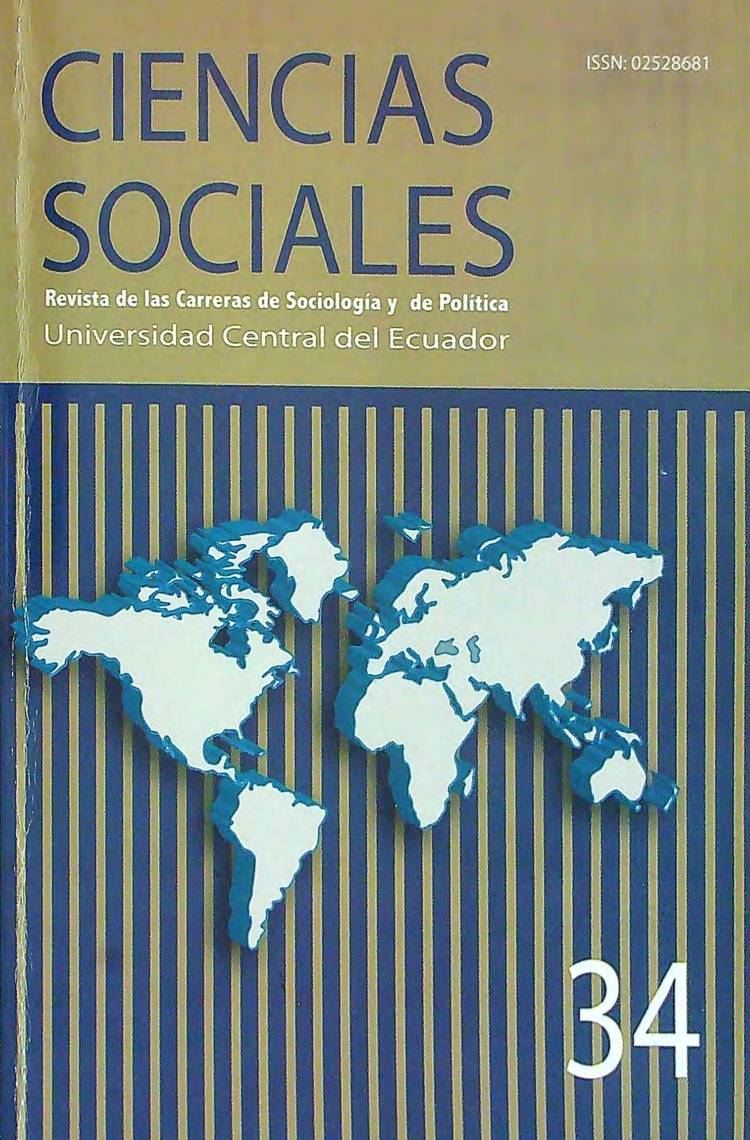Relaciones sur-sur en el contexto de los nuevos patrones en las relaciones norte-sur y la cooperación internacional
Keywords:
Globalization, international commerce, direct foreign investment, gap between rich and poor, triade, BRISCS, ALBA, global forums, fair commerceAbstract
From the perspective of big multinatlonals, globalizatlon is working, commerce grows more than production, south regions have seen increasing their participation in worldwide commerce and direct foreign investments in them has increased. On the other hand, we find that the number of rnalnourished people has increased, the gap between rich and consolidates: the 40% of the poorest worldwide population only receives the 5% percent of the global income and the 20% of the richest population obtains the 75%.
Sub-Saharan Africa is the most dramatic example: poverty, illiteracy, civil fights, environmental demands, inflexible economies, which depends on only one product and drain of resources: in 2002, aid flows toward Africa represented $3.2 milliard, meanwhile, financia! flows from Africa went almost $10 milliard. (Bond 2005)
The triad USA, EU and Japan has governed the worldwide system, but they begin to propose new power centers like BRICS or the latinamerican integration, which only want renegotiate the march of capitalism. At the same time, a movement of movements, the global forums, pretends a "face down"globalization.
There are changes in the internacional cooperation with the emergence of not traditional donors, new multilateral organisms like the ALBA, and the relationships "person to person" like the movement of fair commerce and religious networks, especially in Muslim countries.
Downloads
References
Ohmae, Kenichi ( 1995) The End of the Nation State, New York: Simon and Shuster
Bello, Walden (2006), Dilemnas of Domination, The Unmaking of the American Empire, New York: Metropolitan Books.
Bond, Patrick (2005), lmperialism's African Helpers, Soclalist Review, June.
Cardoso, Fernando Henrique (2007), The Accidental President of Brasil, A Memoir, Washington: Perseus.
Castells (2000), The lnformation Age, Economy, Society and Culture, vol. 1: The Rise of the Network Society, Cambridge M.A.: Blackwell.
Challand, Benoit (2009), Palestinian Civil Society: Foreign Donors and the Power to Promete and Exclude, Routledge, London.
Collier, Paul (2009) Poverty Reduction in Africa, Centre for the Study of African Economies, Department of Economics, University of Oxford.
Fridell, Gary, "Free trade and fair trade", in Haslam, Paul, Shafer, Jessica and Beaudet, Pierre (2009), lntroductíon to Internacional
Development, T oronto: Oxford University Press.
Haslam, Paul, Shafer, Jessica and Beaudet, Pierre (2009), lntroductlon to Internacional Development, Toronto: Oxford University Press.
Hardt, Michael and Negri, Antonio (2000) Empire, Cambridge M.A.: Harvard University Press.
Harvey, David (2005), A Brief History of Neoliberalism, Oxford: Oxford University Press
Hattingh, Shawn, "ALBA, creating a regional altematlve to neoliberalisrn", Monthly Review, July 2008.
Huntingdon, Sam ( 1993) "The Clash of civilizatlons", Foreign Affairs (Summer), 72-3.
Marx and Engels (1967) The Communist Manifesto, London: Penguin.
Ritzer (2010), Globalization: a basic text, Hoboken: Whiley-Blackwell.
Stiglitz, joseph E. (2002) Globalization and lts Discontents. New York: W.W. Norton
Sung, Yun-Wind (2005) The Emergence of Greater China. New York: Palgrave-MacMillan.
Sutcliffe Bob 2004. 'World inequality and globalizatlon'.Oxford Review of Economic Policy 20 ( 1 ).
Sen, Jai and Waterman, Peter, (2009), World Social Forum, Challenging Empires, Montreal: Black Rose Books.
Sklair, Leslie (2002) Globalization, Capitalism and its altematives, Oxford: Oxford University Press.
United Nations Development Program (2007), Human Development Report, New York: United Nations.
UNCTAD (2004) Development and Globalization, New York: United Nations.
Wen, D. and Li M. (2006) "China: Hyper development and envirenmental crisis, in Coming to terms with nature, Socialist Register 2007, London: Merlin Press.
Banco Mundial (2004), Global Development Report, Washington: Banco Mundial.
World Trade Organization (2008) World Trade, Washington: IMF.
UN Department of Economic and Social Affairs (201 O), GlobalReport, New York: United Nations
Downloads
Published
How to Cite
Issue
Section
License

This work is licensed under a Creative Commons Attribution-NonCommercial 4.0 International License.
Política de acceso abierto
La revista Ciencias Sociales adhiere al modelo Acceso Abierto en el que los contenidos de las publicaciones científicas se encuentran disponibles a texto completo libre y gratuito en Internet, sin embargos temporales, y cuyos costos de producción editorial no son transferidos a los/las autores/as.
En ese sentido, no existe costo alguno para los/as autores/as en el envío o durante el proceso editorial, defendiendo el derecho a la información con equidad e iguales oportunidades de acceso.
Licencia y derechos de autor/a
Los autores conservan todos los derechos de publicación del artículo y conceden a la Revista Ciencias Sociales una licencia no exclusiva, intrasferible y sin regalías por duración ilimitada para su reproducción, distribución y comunicación pública a nivel mundial bajo una Licencia Creative Commons Atribución 4.0 Internacional (CC BY NC 4.0)


